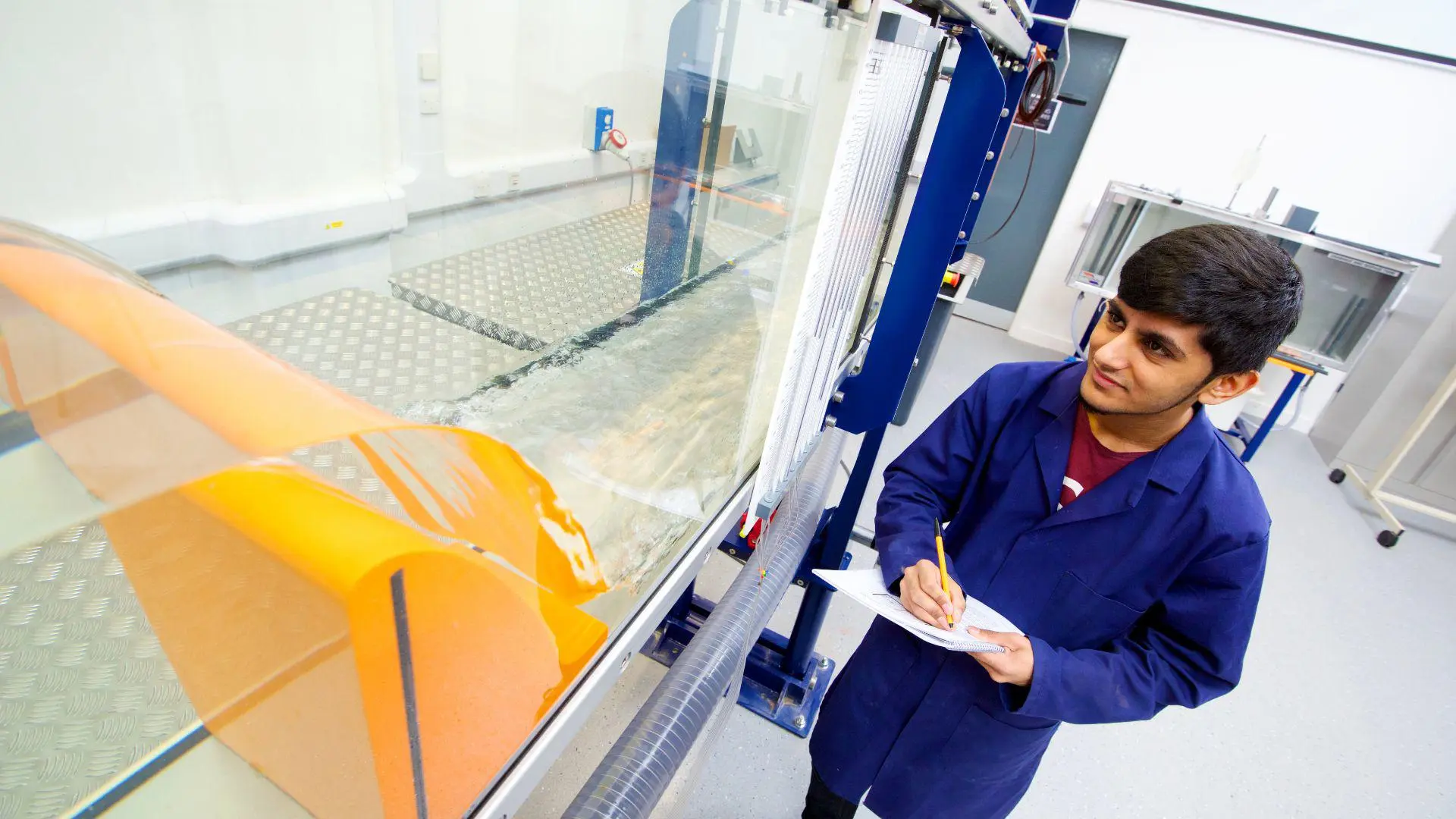At level one, laboratory study is concerned with introducing you to the fundamental properties of such materials. You are asked to investigate the physical and chemical properties in relation to appreciating why different materials are specified for particular elements within the structure, and why buildings stand up.
An outline of the principal areas covered being:
- The performance of cement based materials, i.e. concretes & cement pastes, in terms of the rate of compressive strength gain as a function of the free-water content, inclusion of chemical additives and usage of cement & aggregate replacements.
- The performance of timber beams with respect to applied loadings, including consideration of timber type and internal structure.
- The performance of metals with respect to their carbon content, i.e. elasticity, resistance to corrosion, tensile strength, thermal conductivity.
- The performance of masonry elements with respect to the absorption of moisture.
Some final year research projects stem from level one work.
The Concrete Mixing Workshop based in HB134 is adjacent to the main material laboratory and allows students to mix and cast concrete for use in the experiments in the laboratory. It also allows students to experience on site quality control tests.
A full range of typical soils mechanics tests are available in the Soil Mechanics Laboratory based in HB132A.
The Structural Testing Laboratory based in HB127 offers multiple test machines able to test a wide variety of materials in tension, compression or flexural strength modes. It also includes a fatigue test machine able to simulate the effects of vibration on material strength.

